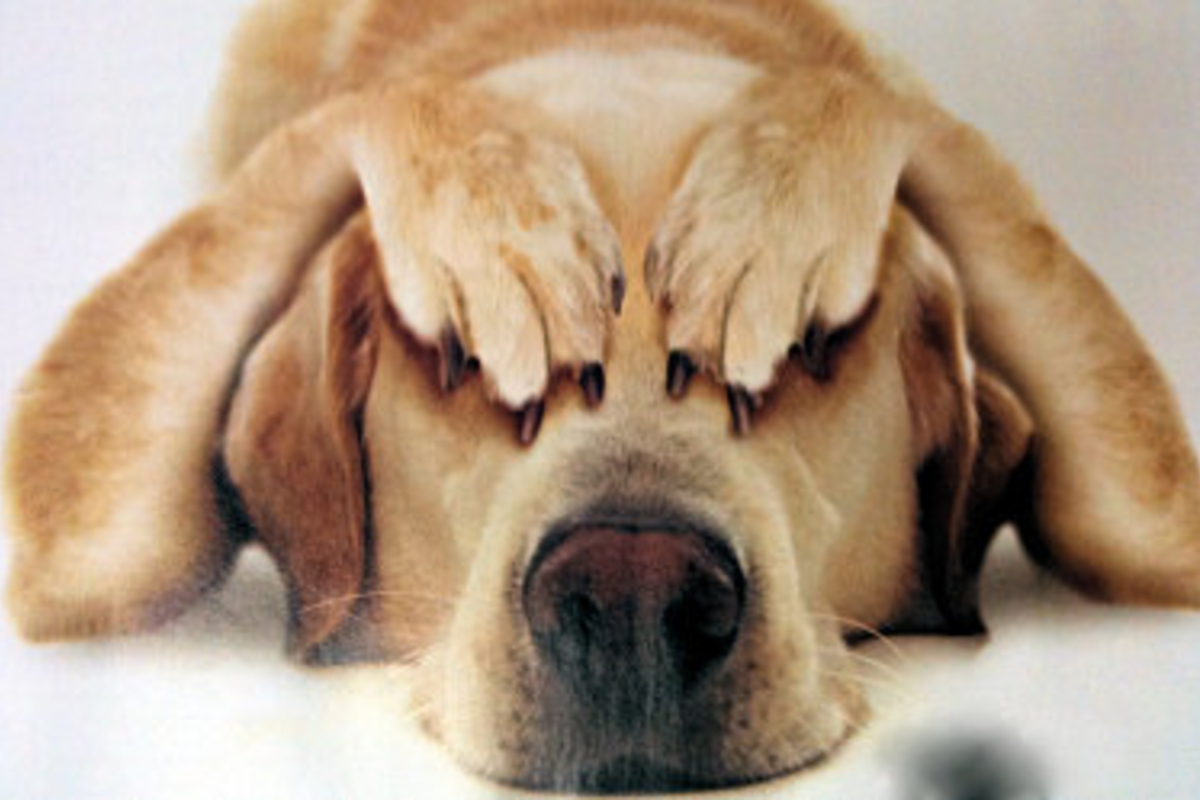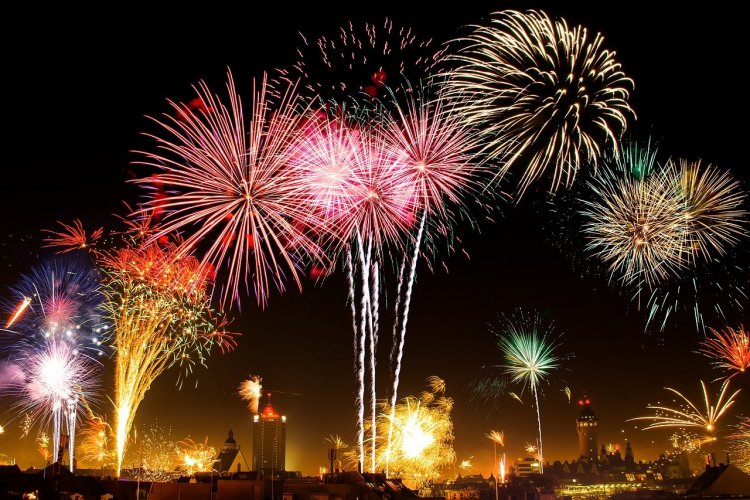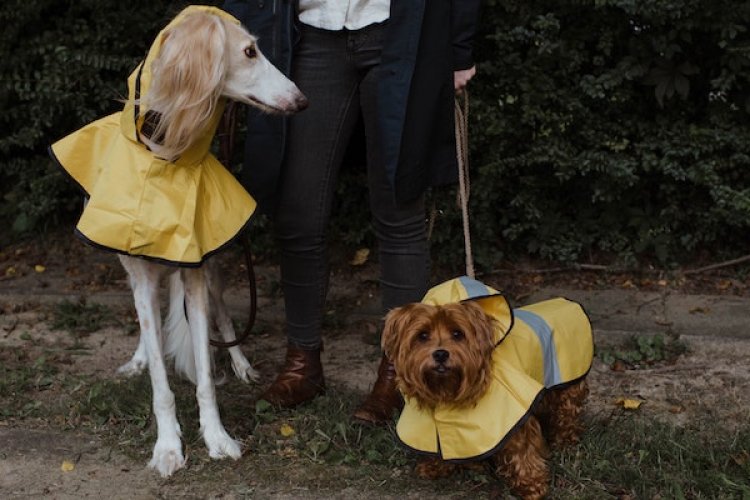Chinese New Year Prep: Dealing with Your Pet's Fireworks Phobia
Fireworks, usually explosions of joy and cheer to ring in Chinese New Year, can unfortunately mean miserable nights for some dogs. To some extent this fear is genetic, but it's also learned. Dogs bred and trained to flush out and retrieve game for a gunner cope well with these noises, as do police dogs. Some dogs aren't capable of a comfort level with fireworks, but a lot can be done to make this fear less of a problem for any dog.
Dogs that are afraid of thunderstorms and fireworks may pant, drool, pace, whine, try to escape, cower and shake or even destroy furniture and have housetraining accidents. It is very important to help your dog as soon as you see these fears appear so as to stop his/her fears from getting worse.
As in dealing with other things that frighten some dogs, your best approach is to work with your dog before you see any signs of fear.
Here are some tips to help your pup cope with all of the holiday festivities:
Get him used to the snap, crackle, and pop!
Many dogs can be treated using behavioral methods called desensitization and counter conditioning to the loud noise. This includes making fireworks and other loud noises fun and playing with your dog during the show. Make a recording of loud noises or use a prerecorded fireworks show. While doing something your dog enjoys - eating, playing fetch, etc., play the recording, softly at first, then increase the sound as your dog becomes accustomed to the sounds. Don't increase the recording too quickly, make sure your dog is not scared during the game. Remember – loud noise = fun!
Create a safe haven
The right confinement area is important during fireworks, especially when the family cannot supervise the dog. This is even more critical for the phobic dog. Dogs tend to like dark, quiet and enclosed areas in which to rest. Many dogs will hide in a closet or under the bed – this works well as long as there is nothing harmful in the area or anything the dog might destroy.
To create a safety zone that you can supervise, you may either utilize a small room or his favorite crate. An interior bathroom, one that doesn't have windows, makes a safe place. Many dogs prefer finding security in their enclosed crates: a small “zen” comfort zone. The aim is to minimize the amount of noise entering the hideout room from outside and the dog must not see the flashes of the fireworks as they explode, so close the windows and use heavy curtains to darken the room.
Place lots of blankets for your dog in which he can dig and burrow. Include an old, unwashed piece of clothing like a woolly sweater so that your dog can smell your scent and feel comforted by your indirect presence.
Leave a few special chews and things for your dog to eat in the hiding place in case your dog fancies something chewy to reduce his tension. However, don't be alarmed if he does not seem interested in them during the actual fireworks – some dogs are simply not interested in treats at times like this!
This designated hiding place must be accessible to your dog at all times. Get your dog used to going to the hiding place 2-3 times each day during the run up to a fireworks display by taking him there and giving him some food or a favorite chew. This will help the dog to understand that this is a good place to go to.
As soon as the fireworks display starts, lead your dog to the hiding place and encourage him to stay there.
The calm before the storm
If you know that there is a fireworks display coming in the next few hours, give your fearful dog some good, vigorous exercise. Take him for a nice, long walk or jog. An exercised body can sometimes wear the mind out, so the dog will be too tired to be afraid.
It is also a good idea to make sure that your dog has emptied his bladder an hour before the display starts.
Don't leave a dog outdoors alone when someone is going to use fireworks. Besides the risk of a fear being created in the dog, many dogs will flee a fenced yard in panic and become lost.
Party time! Drown out the noise
Moderately loud rhythmic music with a good beat is an effective way to mask the firework noises from outside. White noise also works well to mask unwanted sounds, so turn on the radio between stations or play the TV on an off station. Putting a hi-fi system in the room and keeping the volume at a loud but comfortable level can help calm your dog. If using a bathroom area, you can also utilize the exhaust fan to drown out the noise.
Don’t give in to the sad puppy eyes and have a good time
It is tempting to try to soothe your dog to relieve his fears, but this is the worst thing you can do. It gives your dog the impression that there is something to be frightened of, and may even reward him for being scared, reinforcing his fear and anxiety. Also, if your dog comes to think of you as the only person who can soothe the fears then he may panic if there are fireworks when you aren't around to help.
As hard as it may be, ignore your dog when he is looking frightened and only show attention and affection when he has begun to relax. Act happy and confident, and then you may reward your dog for confident behavior. The best thing is to show leadership and use calm assertive energy, but not to pet him, talk to him in a baby voice, or to show him attention while he is in an anxious state.
Ignore the noises yourself and if your pet is only mildly fearful you could try to engage your pet in some form of active game. Try to appear upbeat, happy and unconcerned. Food treats work with greedy dogs, and games that your dog love may be even more powerful in helping the dog mentally tune out the noise. It may help if you play a game with another pet in the household, because the frightened one may be tempted to join in.
If your pet is very frightened by the noises and cannot be encouraged to play, then lead him to the refuge you have created.
A little calming remedy
Herbal and naturopathic calming remedies do exist for dogs, such as Serene-UM and Calmex. These are all natural organic proteins that are safe and can be very effective in inducing a mellow and calm state. They come in tablet or liquid form and can be given a few days before the fireworks to allow your pet to adapt to this herbal remedy. They may be used under the guidance of your ICVS veterinarian.
Extreme cases
For those dogs that may be dangerously destructive to themselves or to others, a veterinarian can help with your behavior modification program and can determine whether or not prescription medication is appropriate.
Pet Identification and microchipping to reunite lost pets
Each year, the Public Security Bureau reports picking up hundreds of lost dogs that ran away during the noisy fireworks displays. Many of these dogs are never reunited with their families as they have no identification. Dogs and outdoor cats should all have an ID tag on their collar for easy identification and should be microchipped to verify ownership. ICVS can help to custom engrave pet ID tags with the mobile number of the owner and can help to microchip your pets at out-patient appointments. Please contact ICVS for more information.
Photo: spyr.is







